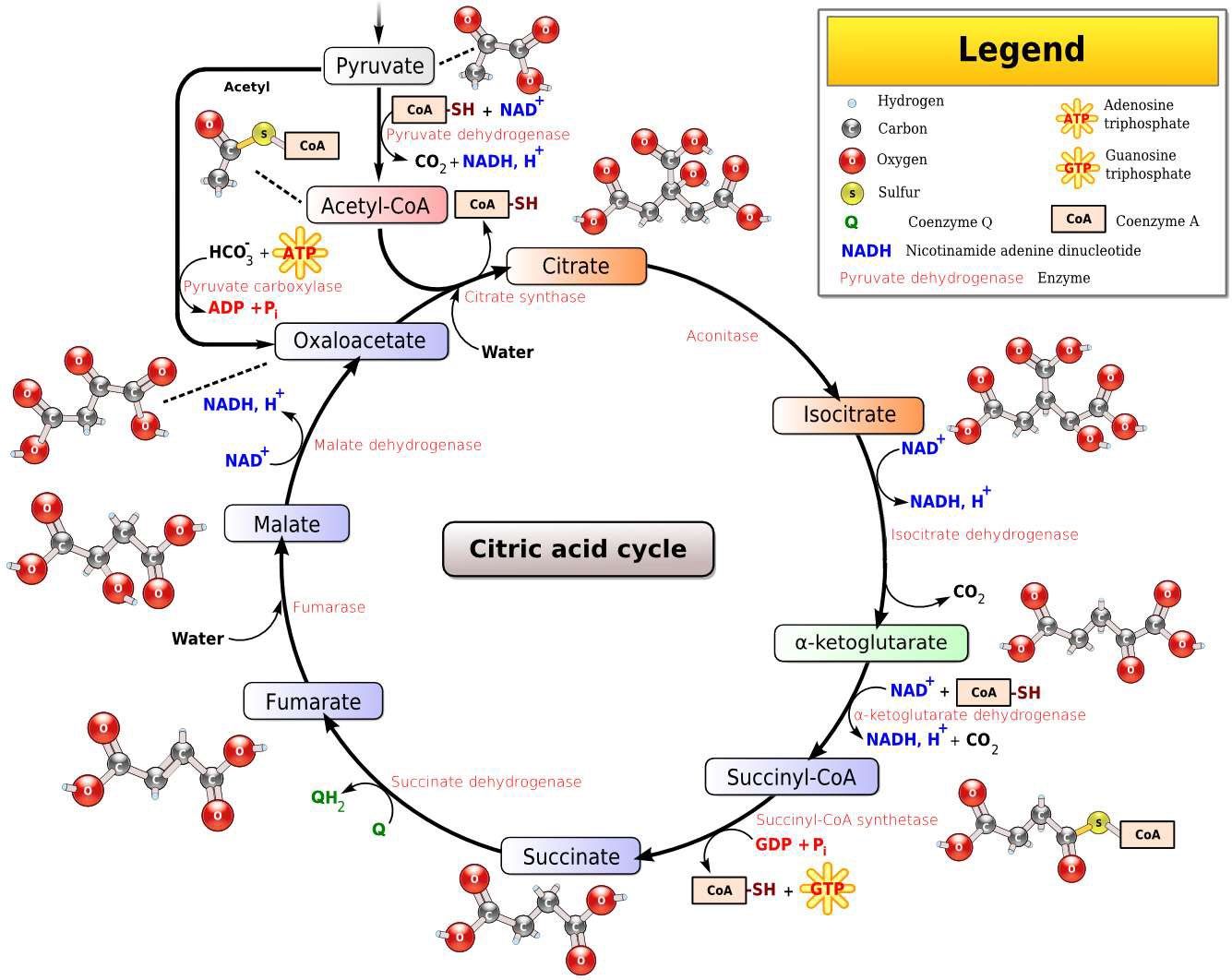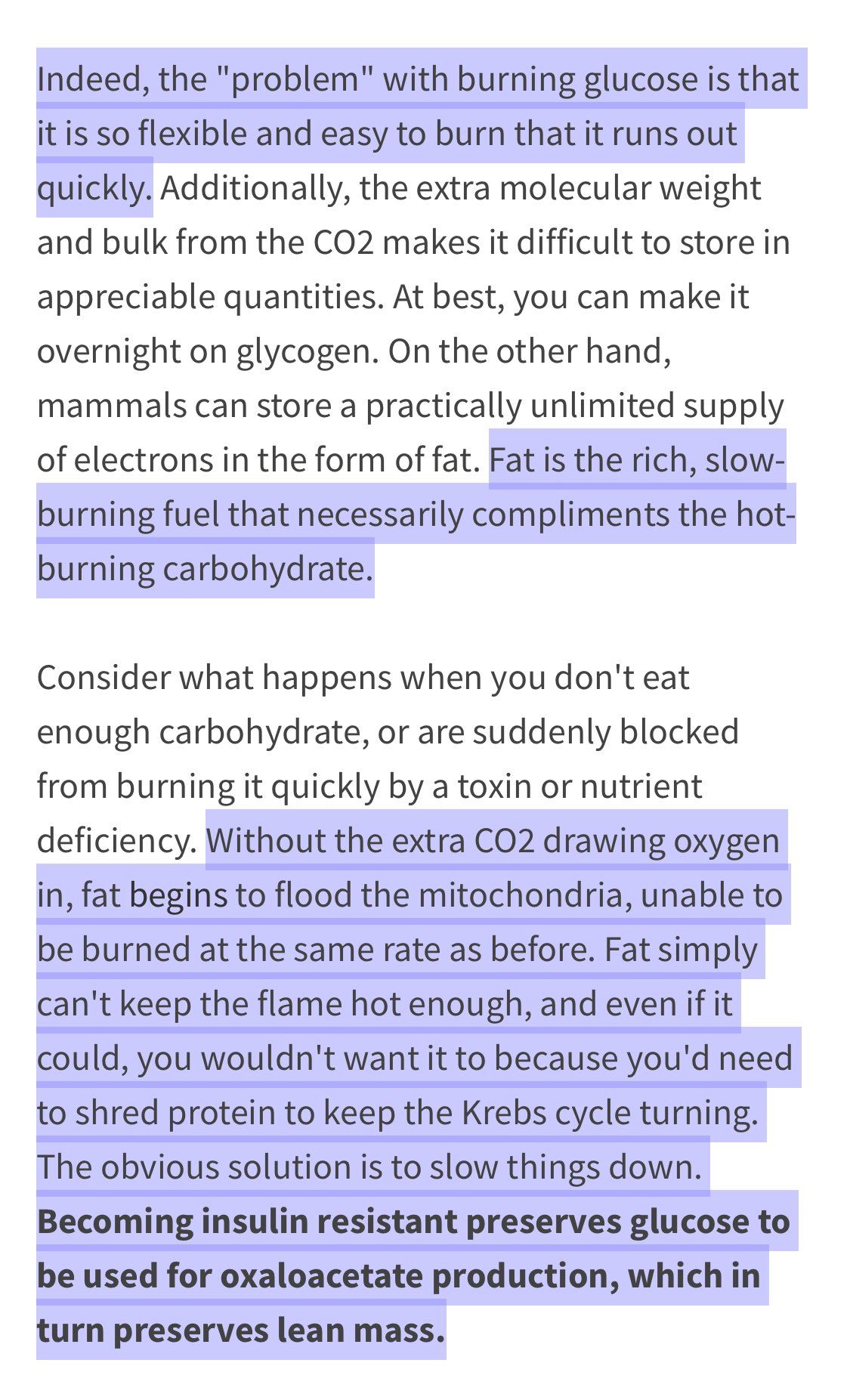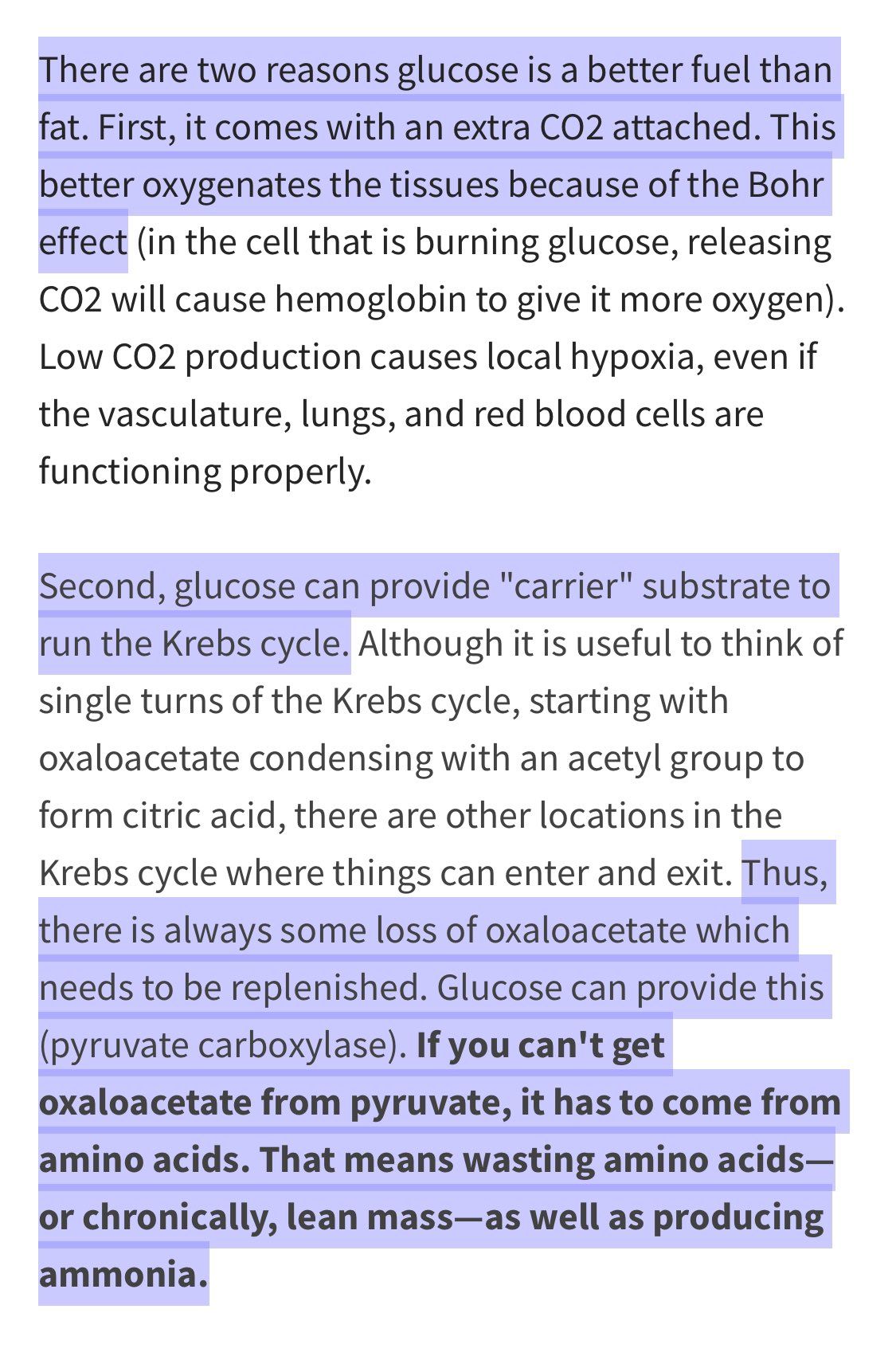β-oxidation leads to lactate, ammonia, hypoxia, lean tissue breakdown.
-
Glucose is such an effective fuel that it is used very quickly, and when lacking in the diet, the body’s solution is to become insulin resistant, sparing it for the essentials.



-
thank you, very helpful. I wonder if the people promoting apple cider vinegar -- if this may work partially by helping jump start the Krebs Cycle from the extra acetate.
-
I think vitamin B7 as a precursor to oxaloacetate can provide oxaloacetate to provide an additional pathway to mitochondrial respiration. Haidut had this on post not long ago.
-
The title is a bit misleading.
Speaks little of beta oxidation but more of sugar mitochondrial oxidation.
If we're relying too much in beta oxidation as an an energy source, it will deprive the sugar mitochondrial pathway of oxidative potential or energy to burn sugar mitochondrially, and the alternate sugar pathway of glycolysis will be used. This is where lactate is produced. This leads to lower CO2 production to a point where hypoxia occurs from poor tissue oxygenation, which further restricts sugar metabolism to the glycolytic pathway and less CO2 being produced.
This causes blood sugar to be less absorbed and metabolized and for blood sugar to rise to higher levels, which causes it to be converted to fat and for blood sugar to drop excessively to the point of hypoglycemia. With low blood sugar, adrenaline is produced which causes glycogen to be converted to blood sugar. But if glycogen runs out or isn't available, then cortisol will cause body protein to be converted to sugar, and ammonia will be produced in this conversion.